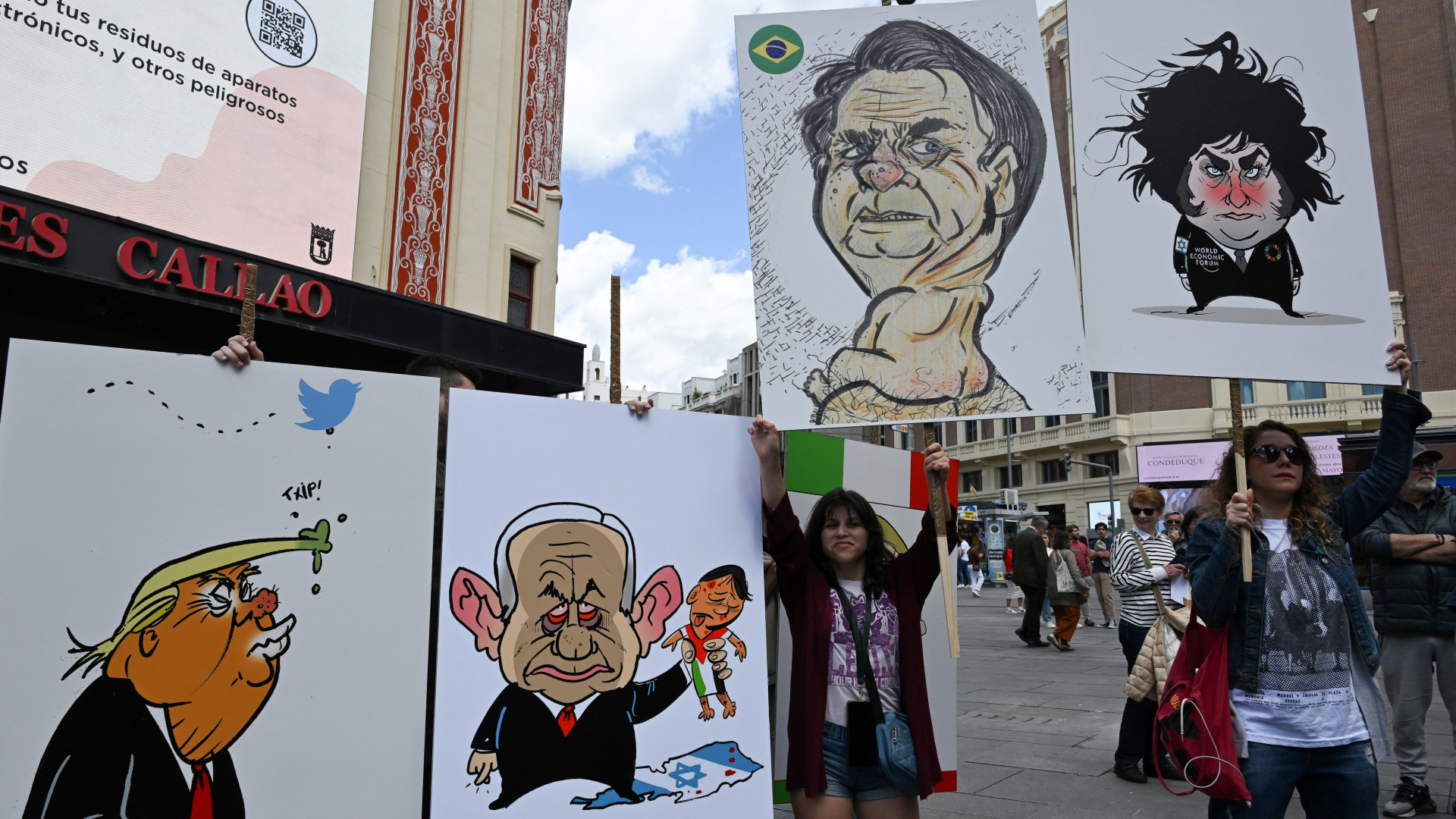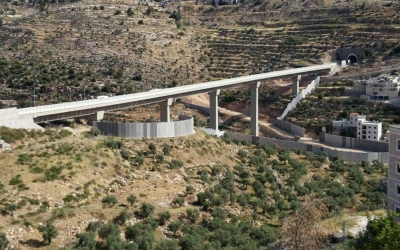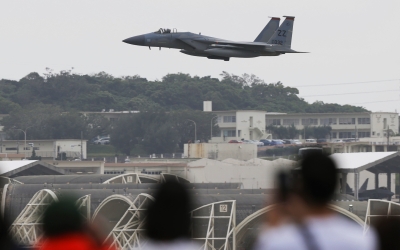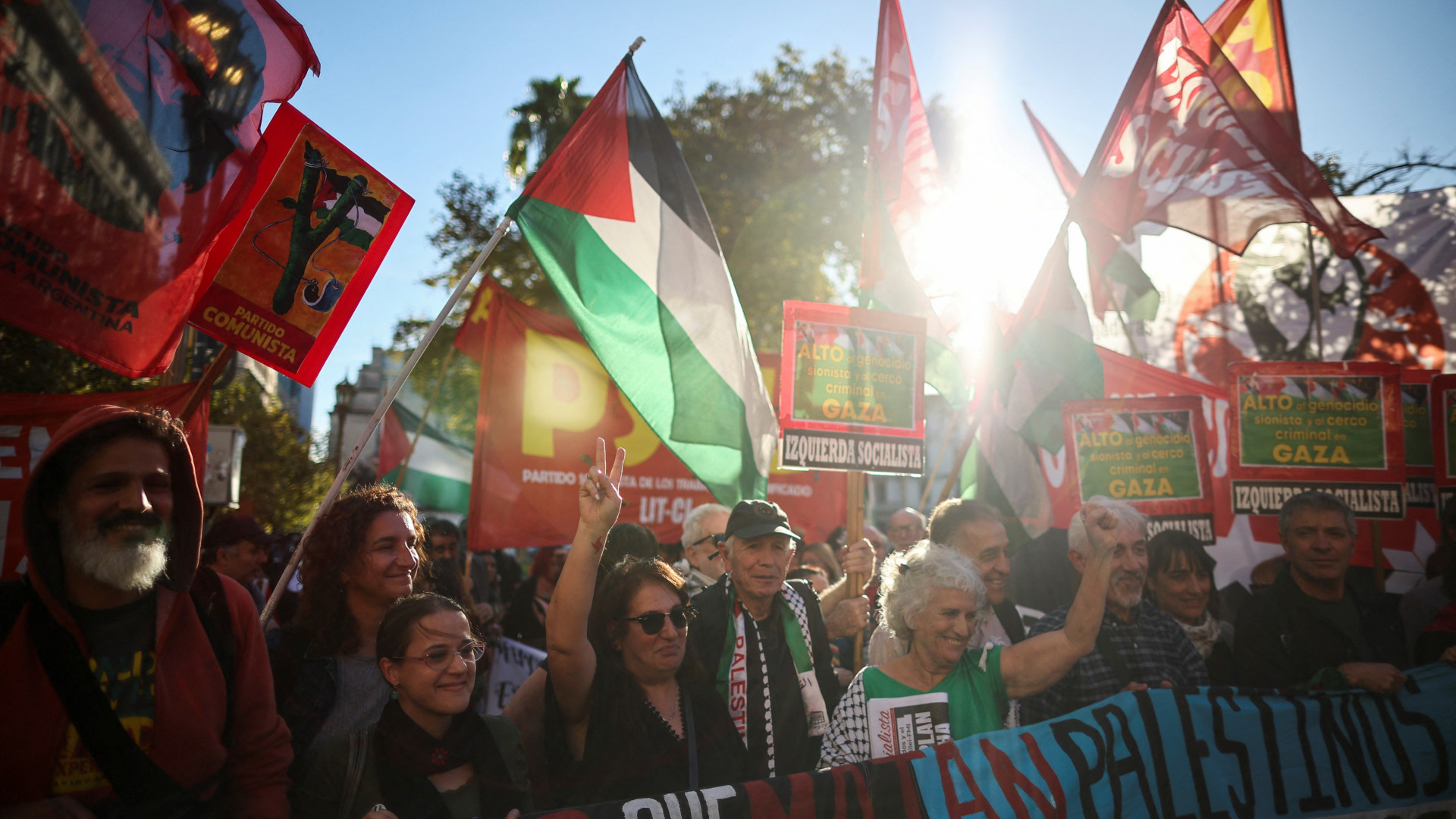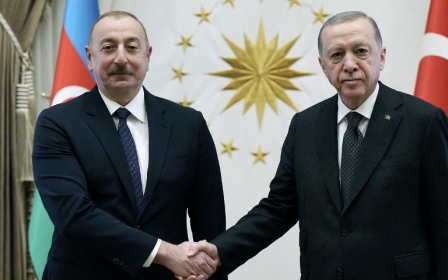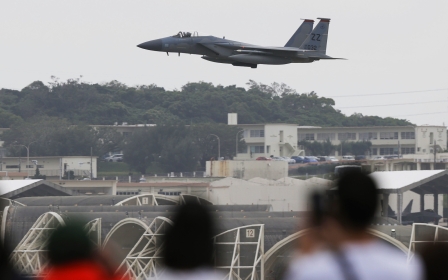Why is Argentina becoming a 'great friend' of Israel amid its war crimes in Gaza?
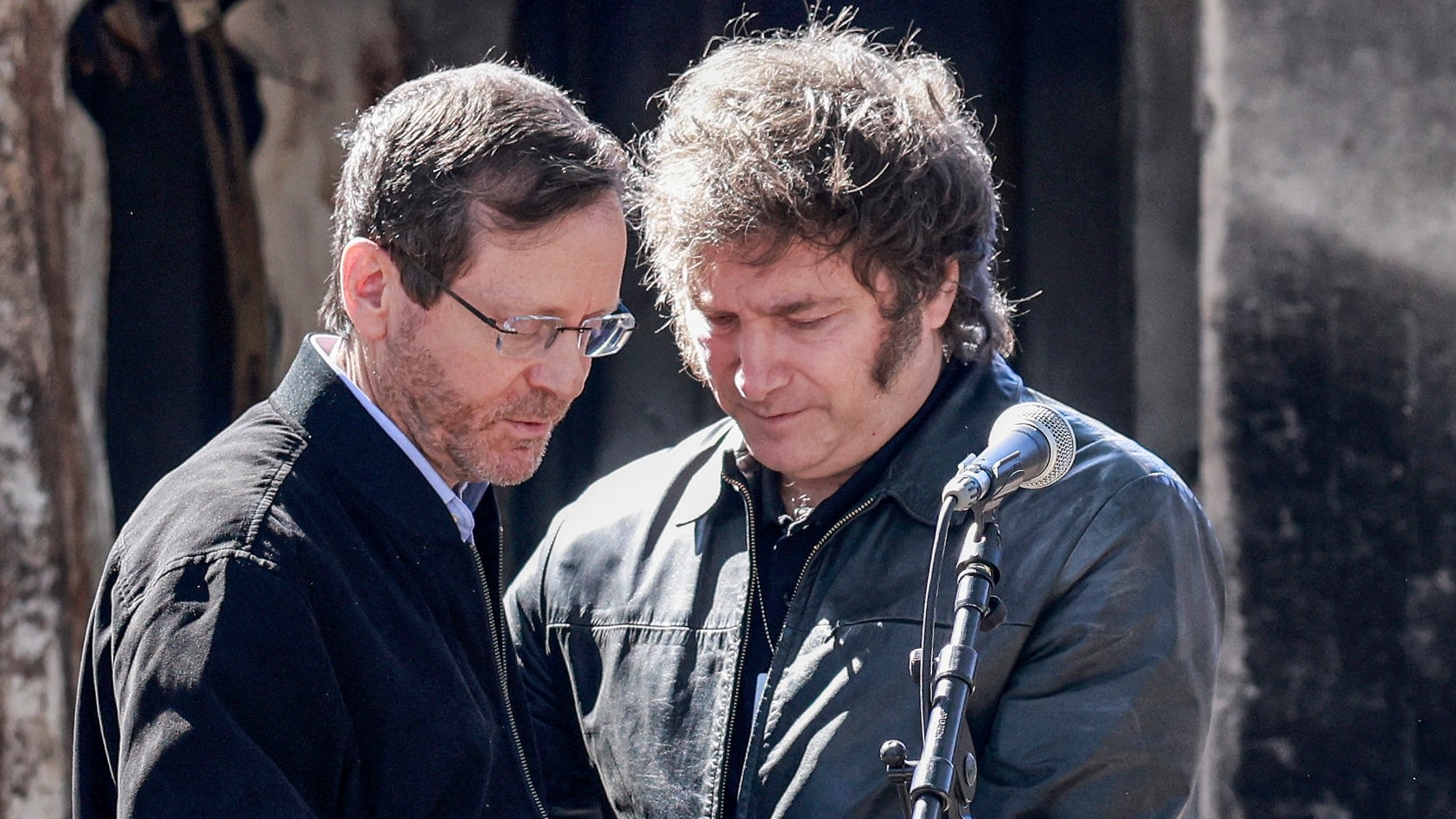
When Hamas launched its offensive against Israel last October, Argentine voters were heading to the first round of the presidential election.
Politicians and candidates across the political spectrum quickly took to X to share their thoughts.
The centre-left outgoing president, Alberto Fernandez, continuity candidate Sergio Massa, and others, including the centre-right Patricia Bullrich and Juan Schiaretti, and the right-wing Javier Milei, expressed their solidarity with Israel and condemned the Palestinian group.
None of the posts made any mention of Gaza, Palestine, or the Palestinians.
Left-wing candidate Myriam Bregman, however, lamented the loss of innocent lives and blamed the Israeli occupation and apartheid for the current violence during the second round of the presidential debate on 9 October.
New MEE newsletter: Jerusalem Dispatch
Sign up to get the latest insights and analysis on Israel-Palestine, alongside Turkey Unpacked and other MEE newsletters
Support for Israel was the dominant view among presidential candidates in Argentina, and the newly inaugurated Milei administration adopted a pro-Israeli foreign policy. Yet some Arab media outlets have misrepresented its stance to present a homogeneous, pro-Palestinian Latin American bloc.
A pro-Palestine Argentina?
At the start of Israel's war on Gaza, Al Jazeera offered a collection of official statements as examples of broad pro-Palestinian sentiment in Latin America.
Since entering office, Milei chose Israel for his first state visit and confirmed his desire to relocate the country's embassy to Jerusalem
Another article in The New Arab asked, "Why is Latin America so pro-Palestine?" and suggested that the region's growing independence from the US, left-wing movements, and sizeable Arab diaspora tilted the balance.
Alternatively, Brazilian academic Fernando Brancoli accounts for the multifaceted reasons driving individual countries' stances on Israel and Palestine based on political ideology, diaspora politics, and security cooperation.
He acutely observes: "Bolivia's actions reflect a strong ideological opposition to Israel's military interventions in Gaza", whereas Chile's position exemplifies how "overseas communities can influence foreign policy" and Colombia's recent "diplomatic discord with Israel reveals the tension between long-standing military cooperation and diverging political ideologies".
As geopolitical tensions between several Latin American countries and Israel heightened after 7 October, Argentina's firm pro-Israel stance has stood out in stark contrast.
Ideological affinity
In 2010, Argentina recognised Palestinian statehood under former President Cristina Fernandez de Kirchner. Her centre-left government helped revive Peronism's three central tenets: social justice, economic independence, and political autonomy. The decision to recognise Palestinian statehood was, therefore, consistent with the administration's political ideology.
It further reflected the "pink tide" sweeping Latin America in the early 2000s. The rise of left-wing governments, deeper regional integration, and greater autonomy from the US marked this political shift.
Follow Middle East Eye's live coverage of the Israel-Palestine war
All Latin American countries, with the exception of Mexico (until recently) and Panama, have moved in that direction. Argentina's position established it as part of this regional zeitgeist.
The receding "pink tide" was marked by a right-ward drift across Latin America as conservative, nationalistic, and pro-US governments came to power. Examples include the 2009 Honduran military coup and the 2012 Paraguayan presidential impeachment. The election of right-wing governments throughout Latin America between 2012 and 2019 further cemented this new wave.
Many of the new presidents, such as Brazil's Jair Bolsonaro and Argentina's Mauricio Macri, openly endorsed Israel, further underlining the relevance of ideological affinity in Latin American-Israeli relations. Milei fits into this grouping of right-wing, conservative governments.
Milei demonstrated his commitment towards Israel on several occasions. For example, he waved an Israeli flag during the campaign trail and anticipated alignment with Israel, among other far-right regimes, during the second presidential debate.
Since entering office, he chose Israel for his first state visit, confirmed the desire to relocate the country's embassy to Jerusalem, expressed "unwavering support" for Israel after the Iranian retaliatory action, and abandoned Argentina's neutral foreign policy by voting against Palestinian full UN membership.
During his meeting with Benjamin Netanyahu on 7 February, the Israeli prime minister lauded Milei as a "great friend of the Jewish state".
Diaspora politics
With respect to Argentine-Israeli relations, there is little evidence to suggest that diaspora politics, particularly the influence of the Jewish community or Israel lobby, has played a significant role in shaping Argentina's foreign policy.
The country had long adopted a policy of "equidistance", or neutrality, towards Israel and Palestine, anchored in its support for a two-state solution.
In 1947, Argentina abstained from the UN General Assembly vote on Resolution 181 (II), the Partition Plan, even in the face of "Arab and Jewish efforts to lobby the Peron government through rival committees set up in Buenos Aires", according to historian Ignacio Klich.
Argentina also abstained on UN Resolution 3379, which determined that "Zionism is a form of racism and racial discrimination".
The 2010 UN vote for Palestinian statehood was independent of diaspora politics and was the outcome of local and regional political trends rather than lobby activities. It was a long overdue decision meant to balance Argentina's foreign policy by granting Israelis and Palestinians the same prerogatives.
Moreover, the Argentine Jewish community represents less than one percent of the total population and holds a diverse range of views that do not necessarily follow the Israel lobby.
One example is the reaction to the recent judicial verdict on the investigation of the 1994 terrorist attack against the Argentine Israeli Mutual Association (AMIA).
Jorge Elbaum, the president of Argentine Jewish Call, writes: "[It] is another element of geopolitical alignment of the current government…and [its] coexistence with right-wing governments around the world, that is, the United States and Israel."
Conversely, Jorge Knoblovits, the president of the Delegation of Argentine Israeli Associations (DAIA), commented: "It is an important decision that repays a debt to Argentine society and determines that Iran is a state dedicated to sowing terror around the world."
He added: "Milei's support for Israel is very important." In other words, diaspora politics in Argentina has little influence over foreign policy as successive Argentine governments have maintained neutrality with respect to Israel and Palestine and excluded Israeli lobby groups from the policy-making process.
Jewish integration into Argentine society and the heterogeneity of this community has also reduced the potential for mobilisation behind a pro-Israel agenda. It further emphasises the significance of the other two elements: political ideology and security cooperation.
Security cooperation
The transfer of military weapons, surveillance equipment, and security training from Israel to Latin America has been well documented.
Security cooperation has long underpinned Argentine-Israeli relations and is expected to grow under the Milei administration
The Israeli newspaper Haaretz reported in August 1978 that "In the course of one and a half months, three Israeli generals (in reserve) visited Argentina". In their research on the military connection between Latin America and Israel, co-authors Bishara Bahbah and Linda Butler write: "By 1981, Argentina was buying up to 17 percent of its arms from Israel."
Israel sold weapons to Argentina's authoritarian-bureaucratic regime, the National Reorganisation Process, while the latter was being accused and investigated for human rights violations and crimes against humanity.
The Argentine Ministry of Justice would investigate, try and condemn the military juntas for those same crimes in 1985. The transfer of military equipment continued with the sale of two Bell helicopters in 1998 and an unknown number of Univision Hero-120 and Hero-30 loitering munitions in 2023 (the so-called kamikaze drone).
In the 1990s, the Argentine military experienced disinvestment and a halt in hardware purchases as democratic governments consolidated civil control and implemented austerity policies. At the same time, the country suffered two terrorist attacks, one against the Israeli embassy in 1992 and another against AMIA in 1994.
Analysts remain divided over the reasons. Argentina's marginal contribution to the Gulf War, cancellation of nuclear material and technology transfers to Iran, and failure to meet promises made to Syrian President Hafez al-Assad have long been argued.
After the second attack, the Argentine and Israeli governments collaborated in presenting a unified narrative and launching an immediate investigation.
Then-President Carlos Menem and Ambassador Dov Schmorak framed Iran as the mastermind and Hezbollah as the executor of the attack. This incident expanded the security cooperation and intelligence sharing between the two states, leading to the so-called Toma Report.
The document was written by Argentine ex-chief of intelligence Miguel Angel Toma in 2003 but was only recently declassified. Toma claimed it details the roles of Iran and Hezbollah in the 1994 attack. While critics argue that the document makes no contribution to the investigation, it otherwise confirms the collaboration between intelligence agencies in Buenos Aires, Tel Aviv, and Langley to present a single narrative.
Security cooperation resumed in the military sphere when the Kirchner administration granted Elbit Systems a contract to upgrade the Argentine Medium Tank and incorporated Krav Maga into the curriculum of military cadets at the National Military College in 2011.
Security cooperation took on a new dimension under the Macri administration. In 2016, Israel offered to assist in screening Syrian refugees, and Argentina hosted a binational security summit. The following year, Argentina announced the purchase of four Israeli-armed Shaldag-class MKII patrol boats and surveillance equipment for $84m.
Security cooperation has long underpinned Argentine-Israeli relations and is expected to grow under the Milei administration.
This was confirmed by Bullrich's return as Minister of Security, having previously held this position under Macri. She recently said: "We receive help [intelligence information] from Israel and the US."
Doves, hawks, and Taliban
"There are doves, hawks, and the Taliban. Patricia [Bullrich] and I are the Taliban," said Milei in reference to Argentine cabinet members.
This marker is most telling of the current administration's dogmatism and non-negotiable foreign policy, which places the country next to other far-right governments around the world.
Ideological affinity reinforced by Milei's personal preference is the main factor driving Argentina's gravitation towards Israel. It has guided a foreign policy that Argentine sociologist Juan Gabriel Tokatlian has characterised as "unusual and improvised".
The election of Milei and his administration's deepening relationship with Israel amid its war crimes in Gaza has prompted political scientist Ornela Fabani to ask whether Argentina's traditional equidistant policy towards Israel and Palestine has ended.
Critically, the recognition of Palestinian statehood was intended to balance Argentina's foreign policy by granting similar rights to Israelis and Palestinians. However, the equidistance framework falls short, as it ignores the consequences of Argentina's historic abstention at the UN, which enabled the Nakba.
In fact, Argentina's equidistant approach has helped obscure a pro-Israel foreign policy that is further fuelled by ideological affinity and underpinned by security cooperation.
This approach ultimately paved the way for the Milei administration to adopt the contradictory position of denying Palestinian statehood at the international level while recognising it at home.
That is, the Milei administration has not taken any legal measures to officially withdraw Argentina's recognition of Palestinian statehood.
Equally so, it continues to gamble away the country's reputation as a human rights defender and risks accusations of complicity by providing political support to a government investigated by the International Court of Justice for genocide and condemned by the International Criminal Court for war crimes.
The views expressed in this article belong to the author and do not necessarily reflect the editorial policy of Middle East Eye.
Middle East Eye delivers independent and unrivalled coverage and analysis of the Middle East, North Africa and beyond. To learn more about republishing this content and the associated fees, please fill out this form. More about MEE can be found here.



